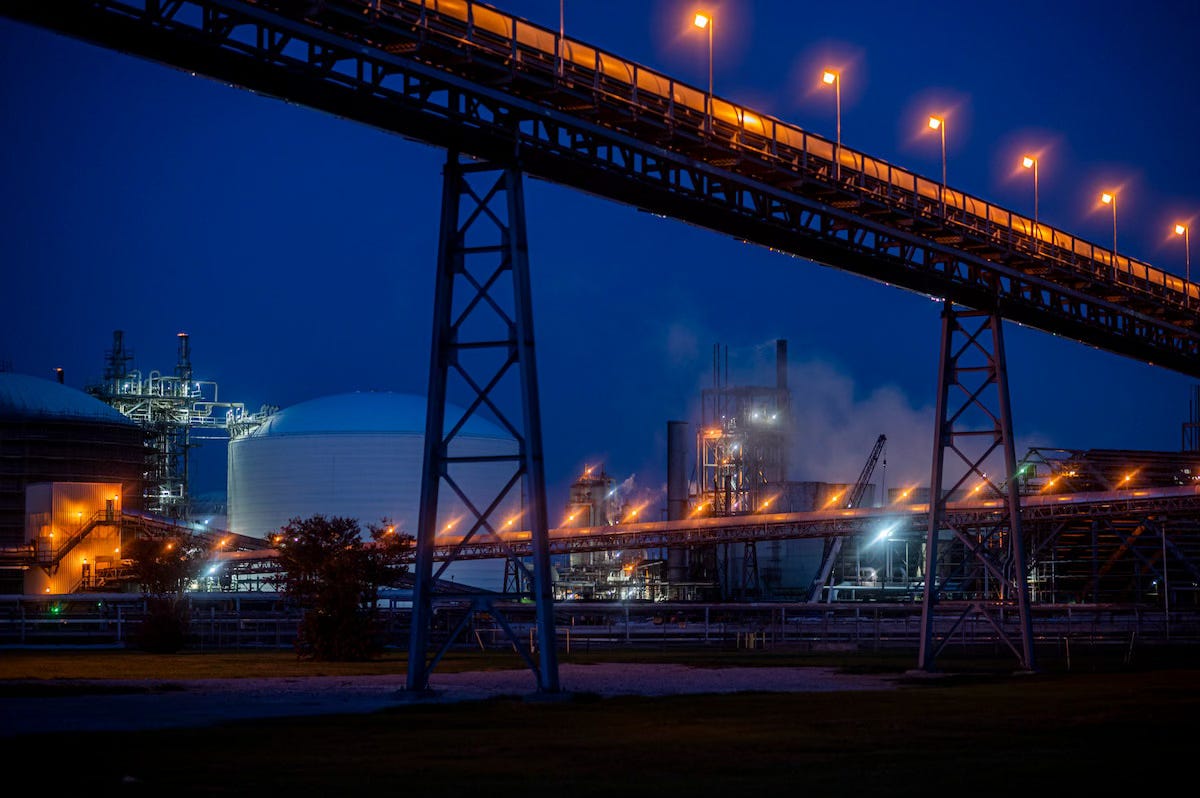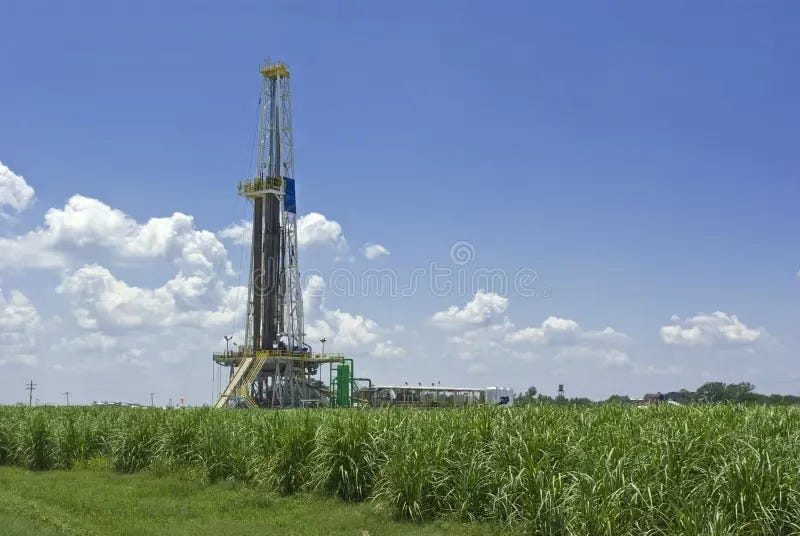Pipes, Permits, and Property Rights: Louisiana’s Carbon Capture Debate Heats Up
By The Bayou Insider Staff
Published: May 8, 2025
Louisiana is no stranger to energy innovation—or controversy. As the state races to stake its claim in the future of carbon capture and storage (CCS), lawmakers are locked in a heated debate over how these projects should be regulated, who gets a say, and what’s at risk if they’re not handled with care.
This legislative session has seen a flood of bills aimed at tightening oversight of CCS operations, especially those involving CO₂ pipelines and underground injection wells. At the center of the fight: landowner rights, environmental protection, and the long-term economic vision for a state built on oil and gas.
Why Louisiana?
With its vast geological formations and robust petrochemical infrastructure, Louisiana is uniquely positioned to lead in carbon capture development. The state currently hosts or plans to host more than $23 billion in CCS investments—projects that could bring up to 4,500 new jobs and reshape the state’s energy profile for decades to come.
But progress comes with tension. Many communities, especially in rural and industrially burdened regions, fear that CCS will become just another way to extract value from their land while leaving them exposed to environmental risks. The result is a showdown between economic opportunity and grassroots skepticism.
The Legislative Push: A Closer Look at the Bills
Several bills have moved through the House and Senate in recent weeks. Some have gained traction, others have stalled—each reflecting different priorities within the carbon capture debate.
HB 4 (Rep. Charles Owen): Would allow individual parishes to approve or deny the siting of Class VI CO₂ injection wells, restoring a sense of local control over where CCS infrastructure can be built.
SB 73 (Sen. Mike Reese): Requires the state’s commissioner of conservation to give “great weight” to local government feedback when approving or denying sequestration permits. This bill has passed without objection, signaling rare consensus.
HB 75 (Rep. Danny McCormick): Seeks to ensure landowners are fairly compensated for the use of their underground pore space for CO₂ storage—an issue tied to both property rights and mineral law.
HBs 380 & 553 (Rep. Rodney Schamerhorn): Propose limiting or eliminating the use of eminent domain for carbon pipelines, a hot-button issue in rural communities where land seizures evoke long-standing distrust of government-backed industry.
HB 568 (Rep. Dewith Carrier): Introduces tougher safety and accountability standards for CCS developers, aiming to protect the public from potential accidents or long-term environmental harm.
HB 522 (Rep. McCormick): Would place a moratorium on all CCS projects through July 2026 to allow for further study and planning. This bill was rejected in committee.
What’s Passed—and What Hasn’t
Of the many bills introduced, only SB 73 has fully cleared the necessary hurdles so far. While it doesn’t give parishes full veto power over projects, it does compel the state to seriously consider local objections.
Other proposals, particularly those that would limit eminent domain or halt projects outright, have met resistance from both lawmakers and industry advocates who see them as threats to energy progress.
Supporters vs. Opponents: The Lines Are Clear
Supporters of carbon capture—including many in industry and state leadership—say Louisiana must embrace CCS to remain relevant in a changing energy landscape. They argue that these projects are essential for cutting emissions, securing federal support, and creating jobs.
On the other side, opponents warn that the technology is unproven, potentially dangerous, and often sited near communities that already bear the brunt of industrial pollution. They raise valid concerns about groundwater safety, long-term monitoring, and who will be left holding the bag if things go wrong.
At the heart of the issue is a broader question: Who gets to decide what happens under the land you own?
Industry Concerns: A Threat to Energy Innovation?
Louisiana’s economy has long been fueled by oil and gas—and the state’s biggest players are now turning to CCS as a way to future-proof their operations. If lawmakers impose too many restrictions or create a hostile regulatory environment, companies may look elsewhere to build.
Energy advocates argue that delays, moratoriums, or limits on eminent domain could jeopardize not only current projects but also the state’s ability to attract long-term energy investment. In a competitive Gulf Coast region, they say, Louisiana can’t afford to fall behind.
“We either lead this transformation or lose out to Texas and Mississippi,” one Baton Rouge industry consultant told The Bayou Insider. “It’s that simple.”
Public Response & Grassroots Action
At the local level, many communities are organizing in opposition to rapid CCS expansion. Landowners have packed legislative hearings, voicing concerns over lack of transparency, inadequate compensation, and environmental risks.
Environmental justice groups are also speaking out, noting that many proposed CCS sites are located in or near historically marginalized communities.
Despite deep political divides, there’s growing bipartisan agreement that the status quo is not good enough—and that more oversight is needed, even if opinions differ on what that looks like.
What’s Next?
As the session continues, more votes, revisions, and committee debates are expected. Lawmakers are feeling pressure from both sides: powerful energy interests pushing for growth and constituents demanding protections.
Whether Louisiana will continue to be a national leader in CCS—or become a cautionary tale—depends on the compromises struck in the weeks ahead.
Conclusion
The battle over carbon capture in Louisiana is about more than pipelines and permits. It’s a test of the state’s ability to balance innovation with accountability, progress with protection, and profits with people.
The Bayou Insider will continue covering this critical issue, elevating the stories of landowners, lawmakers, and communities at the heart of Louisiana’s energy crossroads.
Sources:
🏛️ Legislative Sources
• House Bill 4 (HB4): Authorizes parish governing authorities to determine whether Class VI carbon dioxide injection wells may be permitted within their parish. 
• Senate Bill 73 (SB73): Provides for sequestration of carbon dioxide, requiring the commissioner of conservation to give significant weight to local government input. 
• House Bill 75 (HB75): Provides relative to compensation for pore space owners utilized in carbon sequestration projects. 
• House Bill 380 (HB380): Removes eminent domain authority for carbon dioxide sequestration projects. 
• House Bill 568 (HB568): Establishes public safety and accountability procedures applicable to carbon capture and storage projects. 
• House Bill 522 (HB522): Places a moratorium on carbon dioxide sequestration activities until July 1, 2026. 
⸻
📊 Economic and Industry Data
• Louisiana Economic Development (LED): Reports that there are currently $23 billion in carbon capture-related investments in the state, with a projected 4,500 jobs. 
• Crescent Midstream Project: Crescent Midstream, backed by Carlyle Group, plans to build a carbon capture and storage facility in Lake Charles, Louisiana, expected to capture up to 3 million tonnes of CO₂ annually. 
USGS Confirms Major Oil & Gas Reserves Beneath Acadiana: What It Means for Louisiana’s Future
By The Bayou Insider Staff





